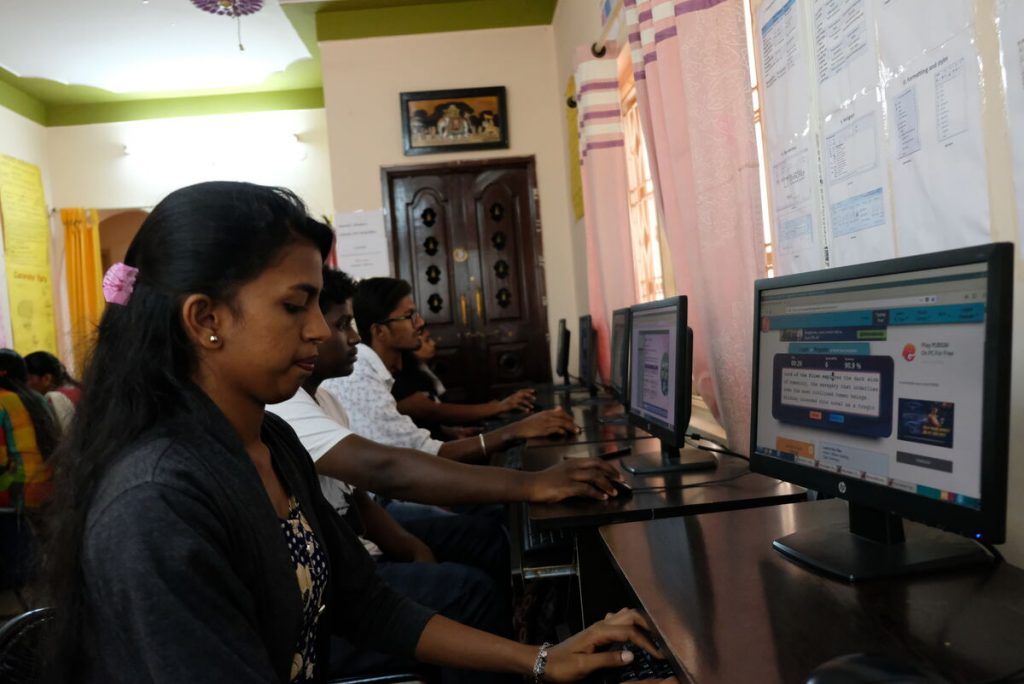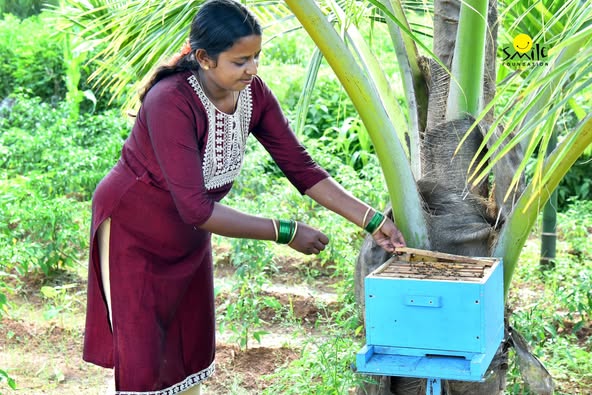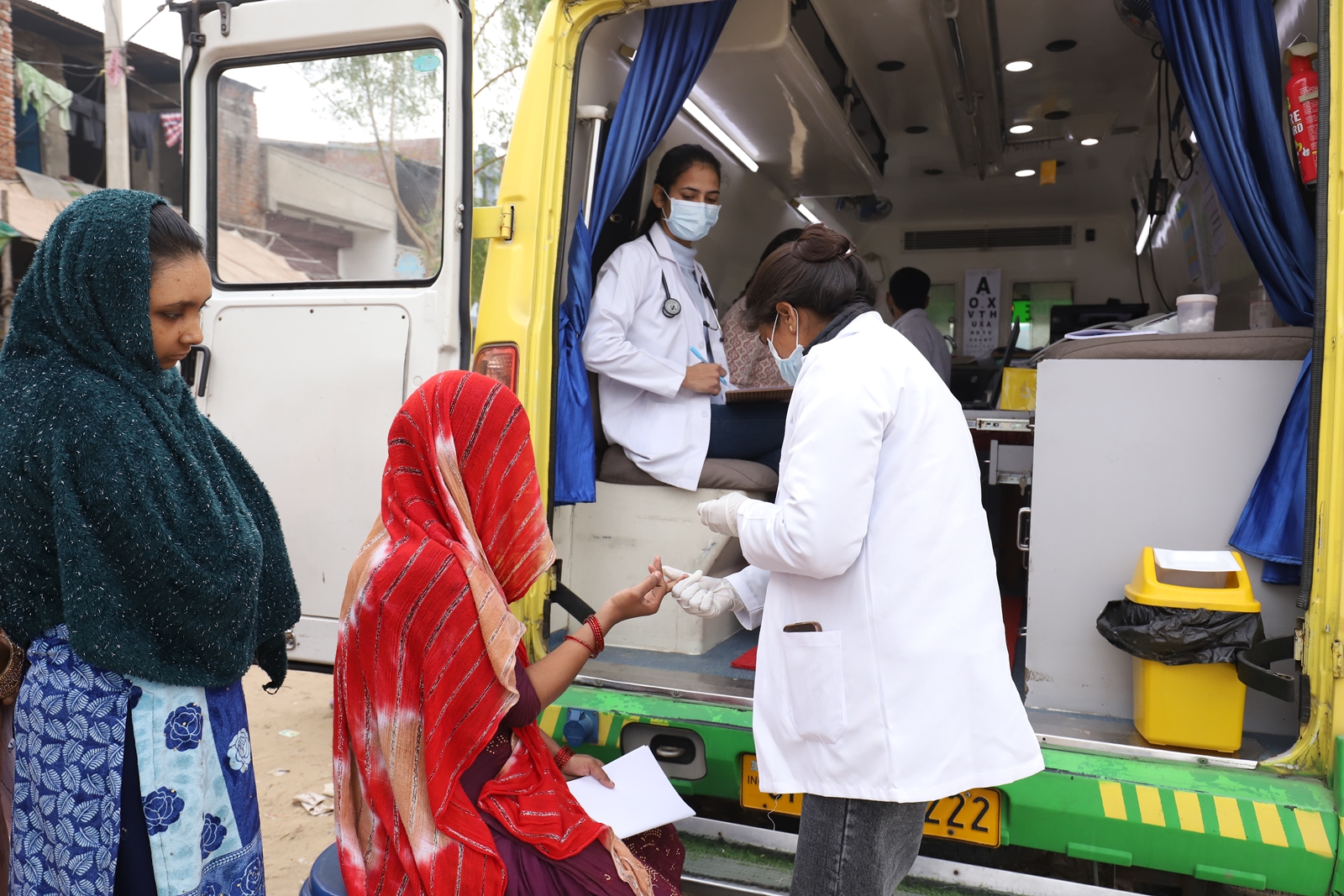Technology and its related industries are growing rapidly in India. In recent times, employment opportunities in fields like software development, data science, machine learning and artificial intelligence have grown exponentially. But the only question that bothers at least half of the countrymen is whether everyone of us gets an equal opportunity to explore our interests, choose a career path of our own choice and grow. It is true that every one of us deserves at least an opportunity to become empowered and independent. But, in reality, not many of us, especially those from rural areas, where more than 65% of its population reside, do not get one.
About half of Indian graduates are unemployable as per the India Skills Report 2021. Open unemployment has gone up from 2.1% in 2012 to 6.1% in 2018. The unemployment rate for graduates has gone up from 19.2% to 35.8%, and for postgraduates, it has increased from 21.3% to 36.2% during the financial year 2022-23. According to experts, India is not lacking jobs but skilled workforces.
One of the main reasons behind that is they lack the right kind of training. As IBM’s India and South Asia head, Sandip Patel pointed out, the right kind of training will make the youth from the country’s small towns more employable by the tech industry. The right kind of training will be helpful to transform the pool of untapped talent into a highly employable workforce and this in turn will contribute significantly to the burgeoning tech sector. But the real challenge lies in providing access to quality education and training to these youngsters. Below are some of the ways to do things right for small-town girls and boys.
- Bridging the Skill Gap
An important reason why youngsters from small towns are underrepresented in the job market is the lack of access to skills that are in demand. One of the effective ways to unlock job opportunities for rural youths is by bridging the skill gap. Before attempting to bridge the gap, one needs to analyse and understand the existing gap in skill sets. The skill gap is nothing but the disparity between the skills possessed by individuals and the skills demanded by employers in a specific industry.
Unlike the metropolitan cities that have world-class institutions and training institutions, rural areas suffer from inadequate infrastructure and qualified instructors. Since rural youths have limited access to education and technology, they are unable to meet the ever-evolving demands of modern industries, mainly in non-agricultural sectors. With industries such as information technology, healthcare, manufacturing and services booming, the demand for skilled professionals is on the rise, but rural youth often lack the training to enter these fields. This limitation restricts their growth potential. As a result, they often find it difficult to secure quality jobs that offer competitive salaries and end up being vulnerable to low-paying, informal employment.
To address the issue, everyone, including the government, educational institutions and private companies, should come together. They should invest both their time and money in expanding opportunities to avail themselves of quality technical education in rural areas. This could be done by setting up training centers, offering vocational courses and promoting the establishment of online learning platforms. By offering upskilling courses in regional languages, the reach of such programmes could be expanded even to the most remote areas. This upskilling will definitely bridge the gap and ensure job opportunities for youths.
Both the government and private bodies have taken numerous initiatives to strive towards bridging the skill gap in rural areas. Some of them are rural skill India, Pradhan Mantri Kaushal Vikas Yojana (PMKVY), Rural skill India, digital literacy programmes and skill development centres among others.
- Creating Industry-academia Collaboration
To cater to the needs of the rapidly changing job market, youths need to have access to the education system that is both dynamic and relevant. But the reality is different. Though the industries are increasingly relying on emerging technologies like artificial intelligence, machine learning, blockchain and sustainable energy, the traditional education system is still followed in most parts of the country.
On the other hand, educational institutions produce a pool of talented individuals. But many of them lack the practical experience that is necessary to thrive in the workplace. This is mainly because of academia’s failure to recognise the importance of incorporating real-world challenges into their curriculum. As a result, graduates may find themselves underprepared for the demands of modern industries.
The only way forward is having structured partnership between industry and academia. Industry-academia collaboration ensures that students are not only equipped with theoretical knowledge but also acquire the practical, hands-on experience necessary to excel in their careers.
Smile Foundation’s Contribution
Through our livelihood programmes, Smile Foundation has been connecting the youth from marginalised communities with sectors that have large growth potential both in terms of employability and revenue generation. For they not only understand the huge gap between existing academic systems and job requirements but are also concerned about uplifting marginalised societies and nation building. One of the important reasons for the underutilisation of Indian rural youth in the job market is that they lack the requisite qualifications and training. Our livelihood programmes are aimed at upskilling, uplifting and mainstreaming these youth. Also, they are aligned with the United Nations’ Sustainable Development Goals.
To bridge the gap in skill sets, the organisation mobilises youth to understand their willingness. We then enroll them in the training courses that last for about four to six months. Once the training is completed, they are provided with hands-on training to prepare them for workplace challenges and career guidance. Our role just doesn’t end there. We have also tied up with numerous companies and have been offering placement support. In most cases, we also provide post-placement support.
We have partnered with more than 400 giants from various industries, including the insurance, banking and hospital sectors. Some of their employment partners are ICICI Lombard, BLK Super Specialty Hospital, HDFC Financial Services, HDFC Life, Venkateshwar Hospital, Fortis Hospital and Apollo Pharmacy. Smile Foundation has over 74 skilling centers and has conducted over 800 career counselling and industry exposure sessions.
The organisation has also partnered with several industry experts, like the Wadhwani Foundation, the NIIT Foundation and Tata Strive. With the collaboration, we were able to provide effective upskilling and vocational training. We have acquired from our partners knowledge and resources like the constant upgrade in our curriculum in core employability skills, banking, financial services and insurance (BFSI), and digital marketing.
The partnership is indeed valuable to the trainees. For, it helps them understand the industry requirements and equip themselves with the skills in demand. Through such collaborations, we have facilitated job placements for trained candidates in companies like Quess Corp., Better Place and TeamLease. We have trained over 90,000 youths to date, of whom over 56,500 have acquired job offers.
The future of India lies in tapping into the untapped talent of small towns. By providing the right kind of training, job opportunities for rural youth are ensured. Thereby, equipping them to thrive in the digital economy. When rural youth are given the right opportunities, they can help propel the entire nation into the future of technology.









